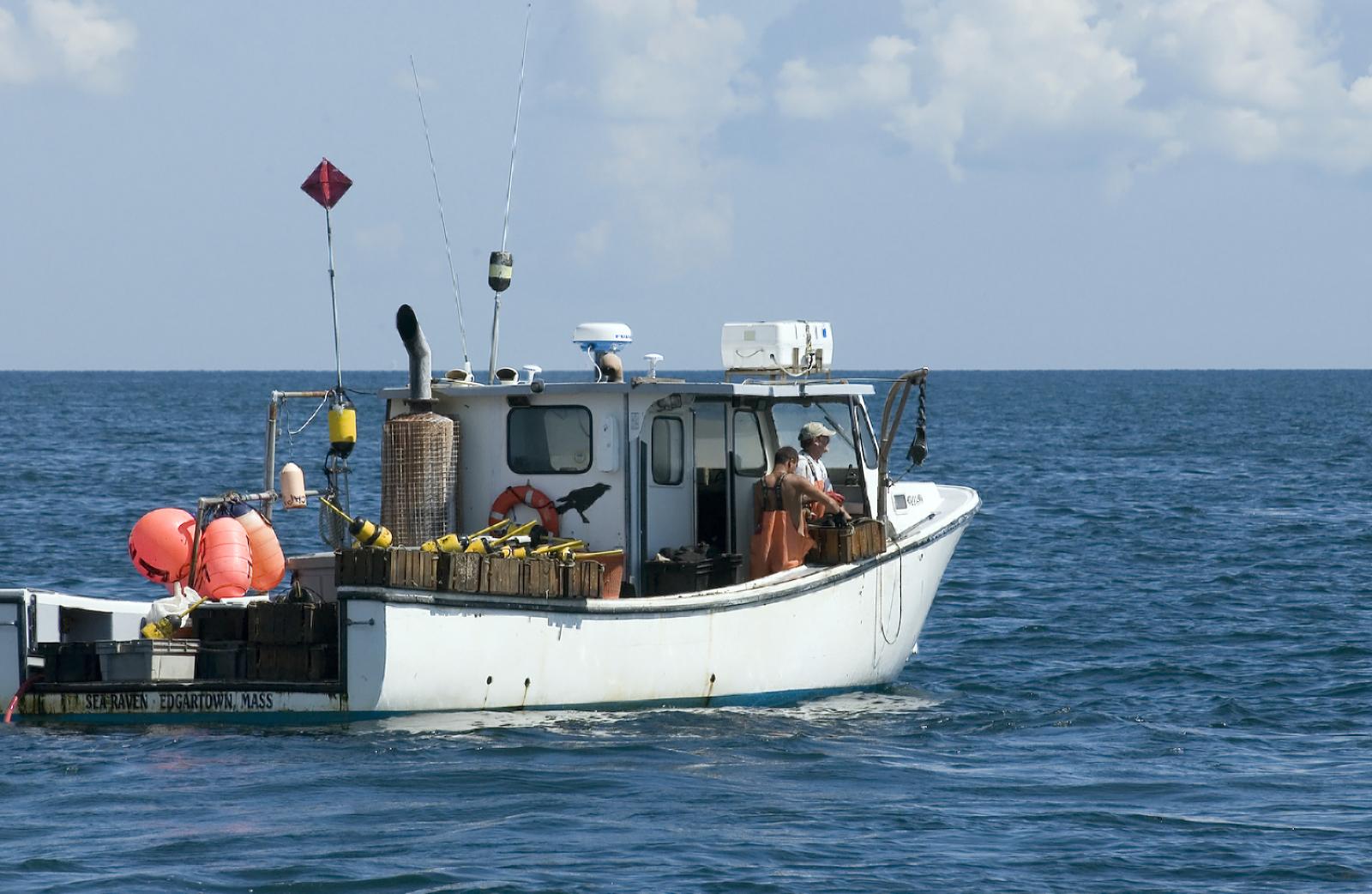Summer weather finally kicked in this week, with temperatures in the 80s. The ocean is still cool, and that is having a positive impact on fishing.
Ed (Bonito Eddie) Lepore called this week to say he had been out looking for bonito without result. And he knows of others who are equally frustrated. “The water is too cool, so the fish are late,” Mr. Lepore said.
Joe Re of Shark’s Landing Bait and Tackle Shop in Oak Bluffs said his offshore anglers are reporting appropriately that the season is at least two weeks behind in both water temperature and the movement of the warmer clime fish.
“The water temperature should be about 65 and 66 degrees around the Island. It is just getting there,” Mr. Re said. “We should have the bonito shortly. The bonito show up when the water temperature is 65 or 66.”
Mr. Re said he is hearing reports anglers are getting bluefin tuna off Chatham, all sizes, giants and footballs. He also said there should be some yellow fin out at the Dumping Ground and at the Canyons. “We are all waiting. I think the guys are just starting to go out there now,” Mr. Re said.
The Dumping Ground is a popular deepwater fishing spot for anglers looking for big fish. It is located about 40 miles south of Noman’s Land. The Canyons describes the edge of the continental shelf.
Mr. Re said he had an angler come into his store Tuesday, saying he had caught a swordfish somewhere near the Canyons. Mr. Re said the shopper came in looking to stock up on tuna fishing gear.
Conch
The conch season is doing well this summer, better than last year, according to Capt. Bill Alwardt of Oak Bluffs. Mr. Alwardt, 54, is one of the Island’s senior conch fishermen, and also, among the first to try it.
Captain Alwardt has been hauling traps loaded with conch and other species for 35 years. He has seen the ups and downs of one of the Island’s most misunderstood fisheries.
The work of a conch fisherman is very much like a lobster fisherman. They haul pots just as lobstermen and the gear on their boats is about the same. Most pedestrians walking the docks of Menemsha can’t tell the difference between a conch pot and a lobster pot, though the difference is significant. Conchs are a carnivorous shellfish.
A lobster pot is an enclosed pot with a hole on the side for a lobster to go inside to feed on bait.
A conch pot is a weighted box with an open top. The conchs climb up the sides of the pot and go inside and can’t get out.
There are perhaps 20 local conch fishermen working the waters around the Vineyard, about the same number as there are lobster fishermen.
For many of the Vineyard’s commercial fishermen, it is a gem of a fishery. The conchs are landed every day at many of the Island docks. They are trucked off-Island and shipped as far away as Italy and China. Nantucket Sound conch is highly prized in New York and New Bedford, and also ends up on dinner tables on the West Coast and abroad. In some foreign markets, Nantucket Sound conch was used as a substitute for abalone when abalone was scarce. The aquaculture raising of abalone abroad has brought some changes to the market, but a strong demand remains.
Only a tiny fraction of the conch fished in Vineyard waters is consumed here on the Vineyard. In Vineyard waterfront lore, conch are considered a predator of shellfish. Conch are capable of consuming bay scallops, and that is bad for shellfishermen. When a bay scalloper spent a day on the waterfront, if he caught a conch, he threw it on the deck of his boat to die. And that was the end of the conch. Today, conch are prized.
Captain Alwardt fishes in a 42-foot fishing boat called Defiance II. His fishing mate of 25 years is Elizabeth Mansure. The two are a unique male and female crew in a world dominated mostly by men. There are a number of fishermen who are just like Captain Alwardt; rising early in the morning, while the harbor sleeps, they get on their boats and head out.
Captain Alwardt said last year was a poor year for him. The conch may have been out there, he said, but they were eating something else. “It was really bad. They didn’t pot,” he said.
“The price is good this year,” Mr. Alwardt said, adding that there is an abundance.
The captain said he began fishing mid-May and has been working steadily since, almost seven days a week.
He usually leaves the dock at 3:30 a.m. and doesn’t get back until 1:30 p.m. It is grueling work, he said, but the season will shift in the weeks ahead. When the conch start mating, in August, the landings drop. When August comes, the captain said he is not sure what he will do.
“The price is real good right now, and that keeps everyone fishing,” Mr. Alwardt said. With few other alternatives for conch fishermen, Mr. Alwardt has a concern about the cycles within the fishery. If the fishermen harvest too much now there may be a decline later. In his many years of fishing conch, Mr. Alwardt said he has seen that happen before.
The state regulatory system is putting too many restrictions on the fishermen, Mr. Alwardt said. Fishermen like him can’t diversify as they could years ago. When one species of seafood was in need of relief, a fisherman could shift his attention to something else. The permit process has forced fishermen to specialize, when it would be better to work with a number of different species.
Captain Alwardt said a conch fisherman years ago could go for black sea bass, scup and even lobsters with the right permits. But with closings and more and more restrictive regulations, he feels he must keep to conch fishing.
Commercial Fishermen Meet
The Martha’s Vineyard/Dukes County Fishermen’s Association had a poor turnout for their meeting on Wednesday afternoon at the Katharine Cornell Theatre. The word among the fishermen was that they were still out fishing.
Jo-Ann Taylor, of the Martha’s Vineyard Commission, came to report on the state of the Commonwealth’s Ocean Management Plan.
She praised the efforts of local fishermen for contributing to the writing of the draft. She said the submission of the fishermen’s trip data and harvest information gave authors of the plan an understanding of the importance local waters have to the community. She said the action by the local fishermen was helpful in getting other commercial fishermen, elsewhere in the state, involved in the process.
The state zoning effort is intended to identify places in the waters around Massachusetts where alternative energy sources like wind power generators might be erected. Ms. Taylor said that under the draft plan, the area of most interest is in federal waters west and southwest of Aquinnah and Noman’s Land. She said more formal public hearings will be held later this year.






Comments
Comment policy »